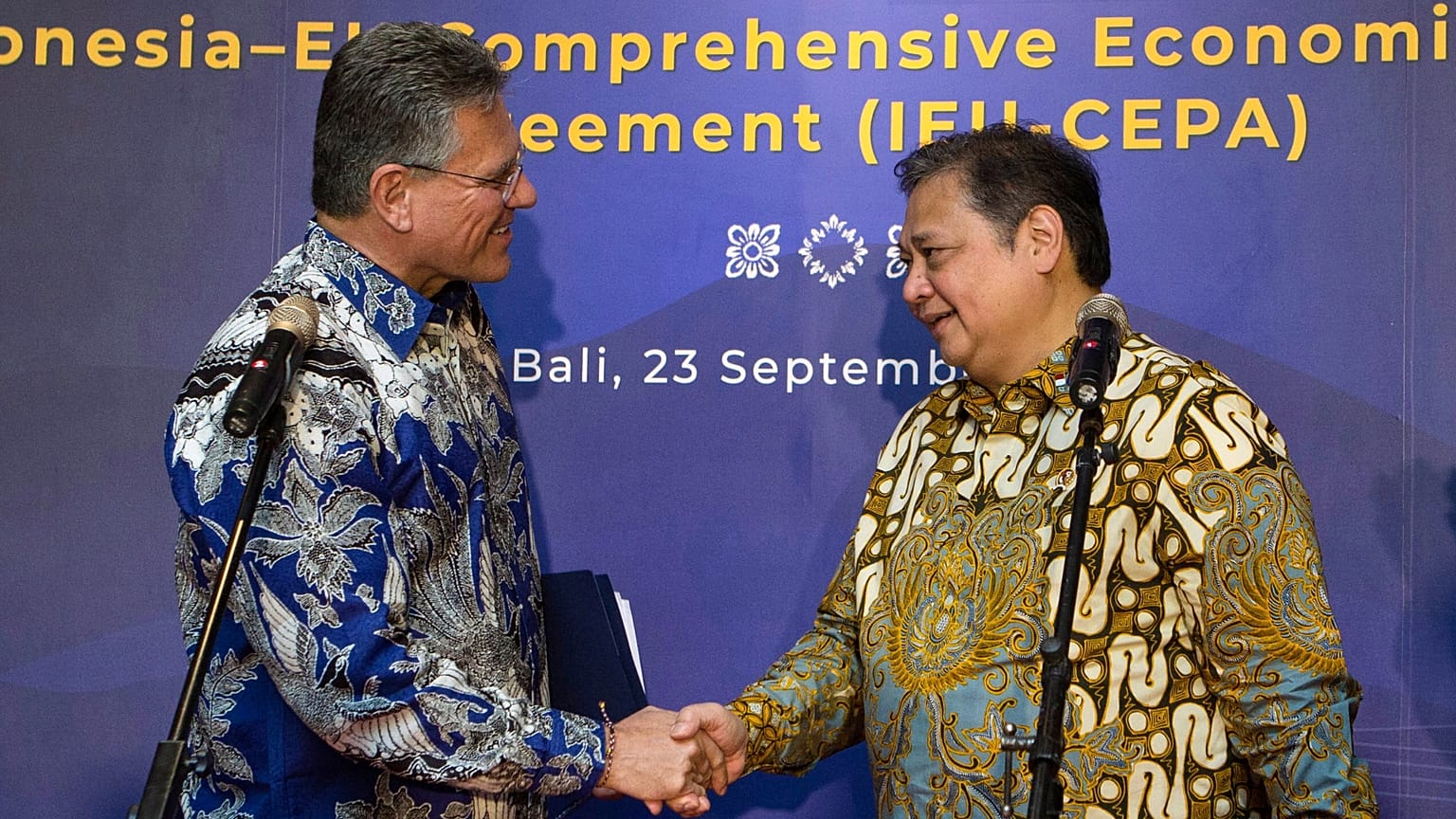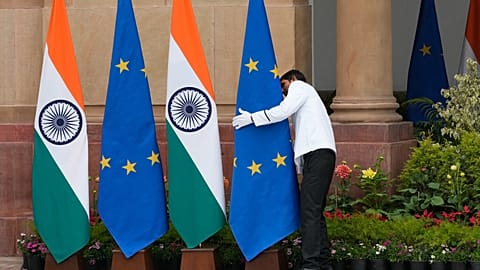The Commission has signed a political agreement guaranteeing access for swathes of EU products to the Indonesian market. Jakarta will also benefit from preferential tariffs, including on highly controversial palm oil.
The European Commission announced it concluded a trade deal with Indonesia on Tuesday, lifting tariff barriers on 98% of EU products exported to Indonesia.
“In a world of rising protectionism and fragile supply chains, when many turn inward, the CEPA [Comprehensive Economic Partnership Agreement] sends a clear signal that the EU and Indonesia are choosing openness and partnership to boost their competitiveness, create jobs and strengthen resilience,” EU Trade Commissioner Maroš Šefčovič said during a trip to Bali on before the deal was closed on Monday.
The agreement frees up access for the vast majority of EU agricultural products exported to the Indonesian market. The EU exports around a billion euros' worth of such products to Indonesia, with about one-third being dairy products.
The Commission has maintained tariffs for sensitive products such as sugar, eggs and ethanol, and will impose tariff rate quotas for a range of others, including garlic, mushrooms and products with high sugar content.
Liberalisation of Indonesian palm oil trade
Around 90% of Indonesian goods entering the EU market will now be zero-rated for tariffs, and Indonesia hopes to boost exports of products such as coffee, textiles and clothing.
Imports of controversial Indonesian palm oil — denounced by NGOs as a driver of deforestation — will also benefit from a preferential tariff of 0% but will be subject to a special protocol.
Ongoing dialogue will be conducted to ensure Indonesia's compliance with EU deforestation regulation, adopted in 2023, which aims to prohibit imports of products that have contributed to deforestation.
The agreement also guarantees the removal of the current 50% tariffs on EU vehicles over the next five years. Indonesia has also agreed to lift local content requirements in certain sectors, including supply chains for electric vehicles and renewable energy.
This agreement is a further step in the EU's trade diversification strategy, following the US decision to impose a 15% tariff on EU imports.
“We have made a commitment to double down on diversification and partnerships, to further support EU jobs and boost growth,” Commission President Ursula von der Leyen said in a statement.
“Our deal with Indonesia creates new opportunities for businesses and farmers in a major and growing economy," she added.


















